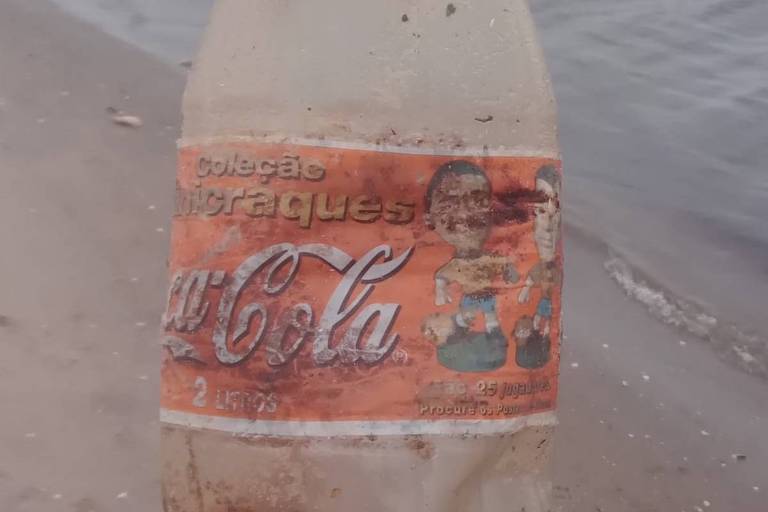Fishermen in Guanabara Bay, Rio de Janeiro, found a commemorative plastic bottle from the 1998 World Cup on Pontal Island in São Gonçalo. It was among the trash on one of the bay's beaches and was recovered by members of the Guanabara Waters project, which removes solid waste dumped into the sea.
"When I picked up this bottle, which I pulled out of the mud, I saw the little figurines. I was near my boss and said, 'look what I found, from the World Cup, the minicraques.' It's a bottle that has been in the sea for quite a few years," says fisherman Rogério Antunes, mentioning the collectible toys representing players in Coca-Cola's advertising campaign.
Despite being dirty and covered in barnacles, the bottle was still intact and had its label preserved. It features illustrations of players Dunga and Romário, who were part of the brand's giveaways during the 1998 World Cup in France. "The bottle even has a more resistant plastic, which Coca-Cola and other companies used back then. It looked like those returnable packages. Nowadays, plastics are thinner," observes Antunes. Two and a half decades later, the bottle was found earlier this month —without its cap, of course. A PET bottle can take from 200 to 600 years to decompose, according to Ibama. When thrown into the sea or rivers, this type of plastic releases toxic substances that contaminate the water.
